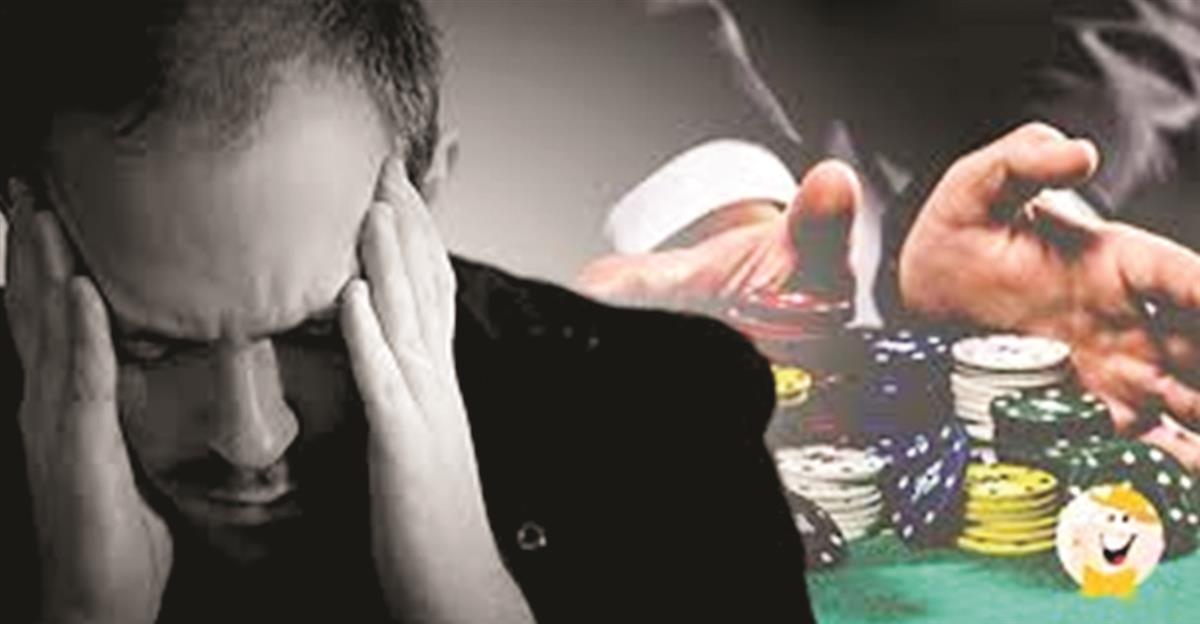Gambling addiction and its prevention measures

In recent decades, there has been a massive, unprecedented growth in commercial gambling. Thanks to modern technologies, various virtual games, including gambling, have become more accessible and diverse. Players can use mobile phones to launch online slots, deposit within seconds and play for money. There has also been a significant increase in online gambling worldwide. The number of players is increasing every day as a result of the spread of gambling establishments, online casinos, walking distance of slot machines, marketing strategies of gambling business entities. This is expected to continue, spreading to new populations around the world.
Gambling means "playing for money". The word comes from the English word "game" − a game. In the ICD-10, gambling addiction has the code F63 (disorders of habits and drives) and F63.0 (pathological gambling addiction). Gambling as a form of addictive behavior in the scientific literature is also described by such terms as gambling, pathological gambling, gambling addiction, gambling addiction, ludomania. The World Health Organization (WHO) has added this disorder to the ICD-11 as a clinical condition associated with distress or interference with the functioning of the personality. This was due to a significant increase in problems, comorbidities and other harm associated with gambling, as well as the need to develop public health programs, strengthen prevention policies and strategies.
According to gambling addiction statistics worldwide, about 26% of the population, or 1.6 billion people, gamble, and the global gambling problem ranges from 0.12 to 5.8%. In Kazakhstan, as well as around the world, the number of gamers is growing. The services of casinos, bookmakers and other "dealers of excitement" already significantly exceed the services in the field of sports, culture or art. The volume of gambling and betting services is 21.3% more than in the field of sports, recreation and entertainment, 9 times higher than the volume of services provided by libraries, archives, museums and other cultural objects and 12 times more than in the field of creativity, art and entertainment. At the same time, in the first quarter of 2021, gambling and betting activities were inferior in terms of services in the field of sports, recreation and entertainment, and in the first quarter of 2020, the industry had the lowest indicator among all the above sectors.
In the deputy request "On taking comprehensive measures to combat gambling addiction", the Deputy Prime Minister of the Republic of Kazakhstan is informed that the average amount of debt of a Kazakhstani gambling addict ranges from 10 million tenge, 7 out of 10 couples in Kazakhstan break up because of gambling addiction, criminal offenses and suicide cases have become more frequent.
CAUSES OF GAMBLING ADDICTION
Psychological sciences consider gambling as a pathological craving for the game (pathological gambling), as a disorder of the sphere of drives and compulsive tendency to gambling, a painful condition characterized by uncontrolled psychological dependence on the game. Note that in the psychological literature there are two points of view that consider gambling as an addiction (comparing it with alcoholism and drug addiction) and as one of the forms of obsessive-compulsive disorder.
An uncontrollable desire for a rush or excitement from winning can lead to compulsive gambling. There is no known cause of this disorder. Concomitant problems related to human health, mental health and general well-being are among the strongest risk factors for developing gambling addiction. Certain factors can increase the risk of gambling addiction, including biological, genetic, and environmental factors. Certain personality characteristics, such as competitiveness, impulsivity and anxiety, may also contribute to an increased risk of gambling addiction. People who have a family member suffering from gambling problems are also more likely to behave in this way. Moreover, compulsive gambling may be associated with certain mental health disorders, such as substance abuse, depression, anxiety, and personality disorders.
SIGNS AND SYMPTOMS OF GAMBLING ADDICTION
Gambling addiction is sometimes called a "hidden disease" because there are no obvious physical signs or symptoms, as with drug or alcohol addiction. Usually, people suffering from gambling addiction deny or downplay the problem, even to themselves. An individual with persistent and recurring problematic gambling behavior leading to clinically significant disorders and exhibiting four (or more) of the following symptoms within 12 months:
Plays for ever increasing amounts of money to achieve the desired excitement;
Shows anxiety or irritability when trying to reduce or stop gambling;
Lies to hide the degree of involvement in gambling;
Endangers or loses important relationships, jobs;
Relies on others to provide money in desperate financial situations caused by gambling.
TREATMENT OF GAMBLING ADDICTION
Treatment of gambling addiction begins with the fact that a person recognizes his disorder. This can be one of the most difficult parts of the treatment, as it is often very difficult for players to admit that they have a problem. In some cases, medications that treat mental disorders, such as antidepressants or mood stabilizers, can help reduce gambling addiction. Long-term treatment to overcome gambling addiction often focuses on behavioral changes and support. Depending on the needs and resources of the individual, treatment may include inpatient programs, outpatient programs or, in some cases, an inpatient treatment facility. It is important to note that despite treatment, a person may still be at risk of relapse, especially when in contact with other players or in a gaming environment. The first recommended step is to talk to this person. While you can't force a person to confront their addiction, you can certainly offer your support if you feel it's safe to do so. You can also encourage a person to seek professional help in dealing with their addiction when they feel ready.
PREVENTION OF GAMBLING ADDICTION
Experts note that in recent years, gambling addiction is more often established in young people 25-30 years old. Consequently, the prevention of gambling in the family should be carried out already from adolescence in the family. Parents need to explain to the child why it is impossible to get involved in gambling and what the consequences of such a hobby may be. Experts in addictology believe that the prevention of gambling addiction can be considered successful if, during the events held, it was possible to form a positive motivation for normal social values and cognitive processes in the society of listeners, to free those who have already had experience in gambling from obsessive thoughts. Gambling addiction should not be ignored.
Gambling is a widespread worldwide activity that brings hundreds of billions of dollars in profit. However, for a large number of people and their close relatives, gambling is associated with the risk of developing a serious problem as gambling addiction. This is the only addiction included that is not related to any substances. Thus, the harm from gambling can be considered as a serious problem of the population and public health. The burden of gambling-related harm is about the same as the harm attributed to alcohol abuse and alcohol addiction. There is an urgent need for public health authorities to regulate this problem both at the national and international levels in order to expand the possibility of early intervention and treatment.
Natalia GLUSHKOVA,
PhD, Acting Professor
Saltanat MAMYRBEKOVA,
PhD, Head of the Department of Epidemiology, Biostatistics and Evidence-based Medicine
